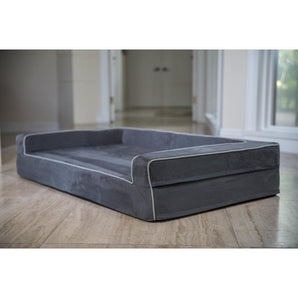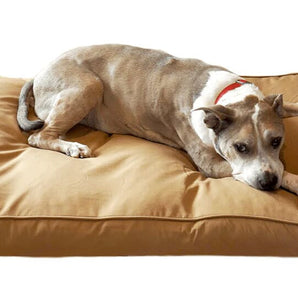2020 was a year like no other for billions around the world. Our way of life was upended by an unlikely pandemic that has left us with long lasting consequences on how we relate with each other and to the world.
COVID-19 is a virus that attacks the respiratory organs of humans. Caused by the SARS-CoV-2 virus, this new strain has continued to mutate as it spreads around humans. But one of the major questions that has been asked a lot repeatedly relates to pets and pet care. What does pet care look like during a pandemic? what is an affordable pet care? How to take care of a pet during the pandemic and so on. This article will be touching down on everything you need to know about pet care during the COVID-19 pandemic.
Can animals contact the COVID-19 virus?
As of today, there have been a couple of cases of animals testing positive for the COVID-19 virus. Some of these animals include dogs, large cats and mink. It is important to note that the cases noticed in the dogs are uncommon and only occur after an elongated exposure to infected humans. Another important thing to note is that most of the infected dogs did not show signs of physical illness and the rest showed some signs of illness which could have been caused by the illness.
As for larger cats like tigers and lions, an outbreak at the Bronx Zoo probably caused by an infected zookeeper led to a few of their animals display cough and other respiratory issues. Another issue arose in Tennessee with Malayan tigers.
Minks on the other hand are a prime candidate for the virus and multiple mink farms in Europe and the United States have reported their minks getting ill and displaying breathing problems leading researchers to believe they are susceptible to the virus.
To be clear, the ratio of animals getting infected compared to humans is relatively low and most of those animals did not show any symptoms or get sick. Across the globe, the rate of animals being infected does not appear to be spread evenly
Preparing for pet care during COVID-19
Getting infected with the corona virus will mean you will be unable to move around for a few weeks. This makes it important to ensure that you have a reachable supply of what your pet needs in order to ensure you can cater for your pet while you are incapacitated.
Also, contracting COVID-19 would cause you to remain quarantined on your property which could cause caring for your pets to be more difficult. If your home has a private yard, you can choose to walk your dogs within this secluded area and if you do not, you might need to either train your dog indoors or drop your dog at a boarding school. It is important to note that if you train your dog within the home, it could be difficult to get him out of the house.
If you still wish to train your dog indoors, you should opt for potty pads, artificial grass trays, pet turf or another surface for elimination. A great way to do this would be to begin by putting on your dog’s leash and walking him to this new area to help drive home the point that this is the new area for elimination.
An easier option might be to simply get someone to take care of your pets during the period you will be unavailable to do so yourself. You should ensure that whoever opts to take care of your pet should be a complete professional that knows how to take care of themselves and practice social distancing when necessary.
How to care for your pet if you have COVID-19
As you might know, COVID-19 is not an immediate death sentence. If you get a positive COVID-19 test result, the general recommendation by health officials is to reduce your contacts with pets and any other animals as a precaution for now. If your pet is a cat, try to keep it indoors and prevent it from encountering other animals or human beings. Keep your dogs on a leash whilst walking them and ensure they are adequately distanced from other animals and people.
The ideal solution would be to get someone else to take care of your pets till you test negative for the virus. In the same way you would need to quarantine yourself from other people, you should quarantine yourself from your pets. If this is not possible because you live alone, reduce the contact you have with your pets as much as possible. Here are some steps to take to get you started:
- Ensure you wash your hands completely before and after you engage your pets.
- Make sure you wash your hands after handling your pet’s food or water bowls.
- Do not have close contact with your pets, like kissing or snuggling.
- Ensure you cough or sneeze into your elbow. You could also use a tissue but ensure you get rid of the tissue in a hygienic way where your pets are sure to not access. Make sure you wash your hands after coughing or sneezing.
- Always wear a mask – this is very important and it could reduce the spread of droplets.
- Make sure you always clean and disinfect any surfaces you engage with.
If you test positive for COVID-19 and your pet suddenly becomes ill as well, do not take your pet to the vet yourself. Make sure you call the vet and let them know the situation on ground. Most clinics have developed telemedicine options or another option for situations like these and would immediately swoop in to offer the best per care possible. Doing this protects the vet that will treat your pet, the animals they might get in contact with and the families of these pets. It is important to disclose as much as you can so the vet knows exactly what they are dealing with.
Pet care during COVID-19 does not signify an end to the way of life you and your pets once shared. But in order to be safe and keep your pets from any possible harm, practicing these preventive steps could cause your pets to be exempt from any future illnesses or complications.





